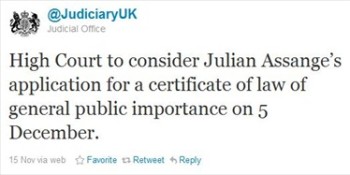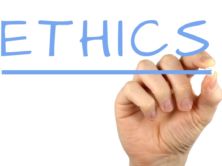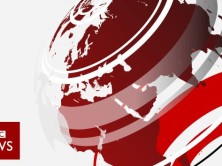
The UK Judiciary confirmed that Julian Assange will attempt to appeal the High Court's rejection of his earlier appeal of an extradition to Sweden. (Credit: Twitter, screenshot)
WikiLeaks‘ Julian Assange is appealing the Nov. 2 ruling that he must be extradited to Sweden to face questions in two sexual assault cases. According to the Associated Press, the UK Judicial Office confirmed that Assange filed an appeals application to the UK Supreme Court.
In February 2011, the UK courts decided Assange should be extradited. In July, Assange appealed that ruling. The Nov. 2 ruling rejected his appeal. The next step, given his appeal application, is a Dec. 5 hearing, during which his lawyers are to argue “that his case raises a question of general public importance and should be considered by the Supreme Court,” the Associated Press reported.
However, if his lawyers can’t convince the High Court judges of this, he will likely be extradited, according to the Associated Press. If the High Court accepts this appeal, then his appeal case will go to the UK Supreme Court.
The BBC reported that Assange’s appeal is based on two issues: 1) He claims the extradition order is “unlawful.” and 2) He questioned if he can be called “the accused” since there are no charges against him.
The UK Observer’s John Naughton questioned in a Nov. 12 post on the Guardian’s website “If Assange were a print man, would he be called a terrorist?”
Naughton commented that Assange “does indeed appear to be his own worst enemy – alienating all but the most sycophantic supporters, repudiating his ‘authorised’ biography, and so on…But the truth is that Assange has far more formidable enemies than himself. And many of them work for what we might now call ‘old media.'”
Naughton questioned the way print media’s publication and WikiLeaks’ publication were differentiated, arguing that both “are in the same business – namely publishing, in the public interest, information that powerful agencies in society wish to keep secret.” As such, Naughton commented: “I can’t see much difference between what WikiLeaks did with the cables and the New York Times did with the Pentagon papers. The lesson for old and new media alike is simple: from now on, we’re all in this together.”
Naughton cited Harvard professor Yochai Benkler’s paper on WikiLeaks and the US government. Benkler’s paper (see here) is titled “A FREE IRRESPONSIBLE PRESS: WIKILEAKS AND THE BATTLE OVER THE SOUL OF THE NETWORKED FOURTH ESTATE.”
Benkler questioned criticism of WikiLeaks commenting that WikiLeaks because “steadily more cautious and responsible” and that and that there is “the apparent absence of evidence of harm.” He attributed this criticism to Wikileaks exclusion for “the familiar ‘responsible press.'”
Benkler argued “The traditional news industry’s treatment of Wikileaks throughout this episode can best be seen as an effort by older media to preserve their own identity against the perceived threat posed by the new networked model.” Benkler also criticized the mainstream media’s coverage of WikiLeaks’ Cablegate publication, noting that “a study of major print newspaper stores” mis-stated the number of cables WikiLeaks had published “during the first two weeks after the November 28th release.” He wrote:
“Reporting of the events at the time suggests not so much a conspiracy but confusion and lack of clarity about the facts.”
Read his paper here.






Comments Terms and Conditions